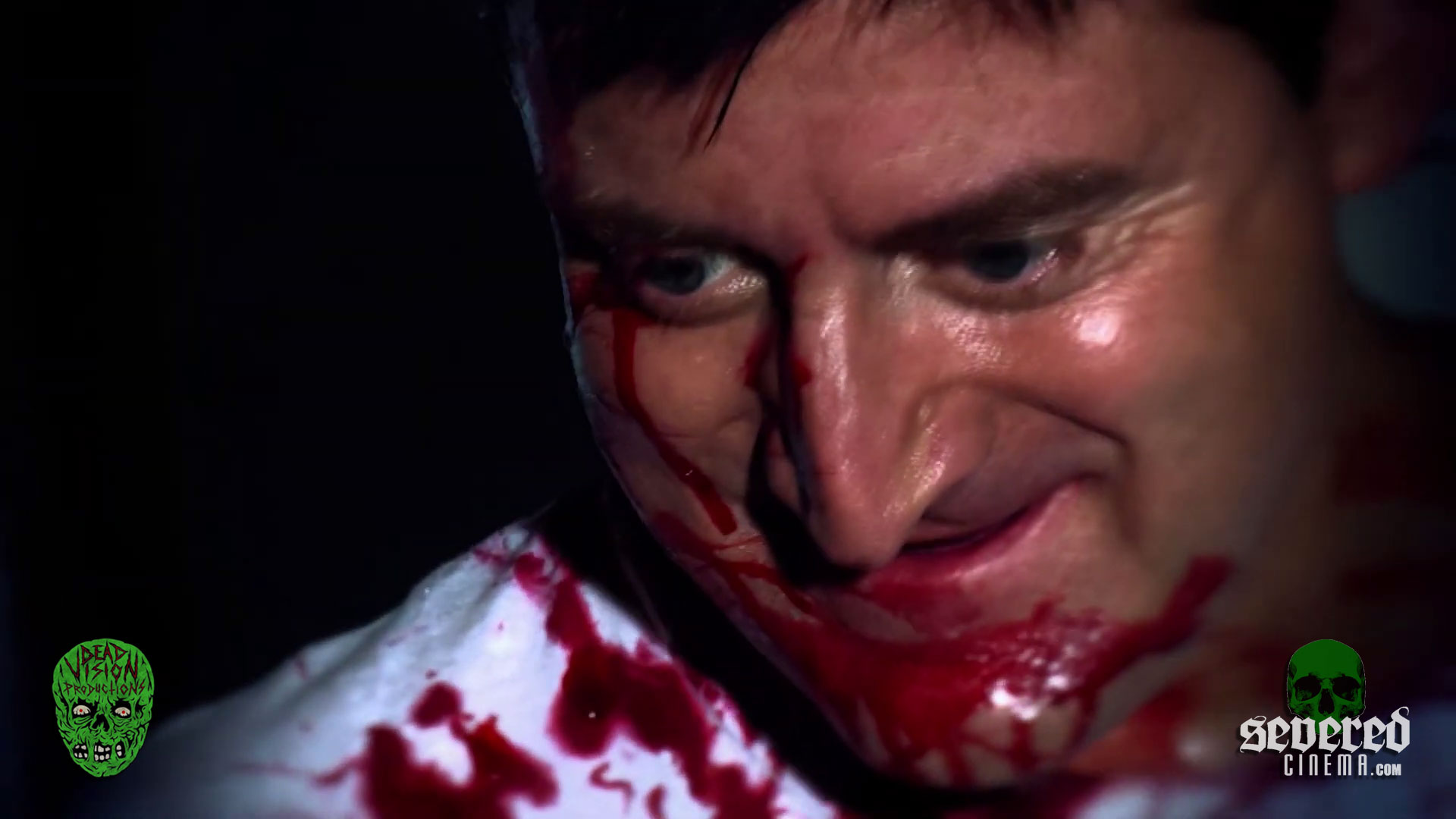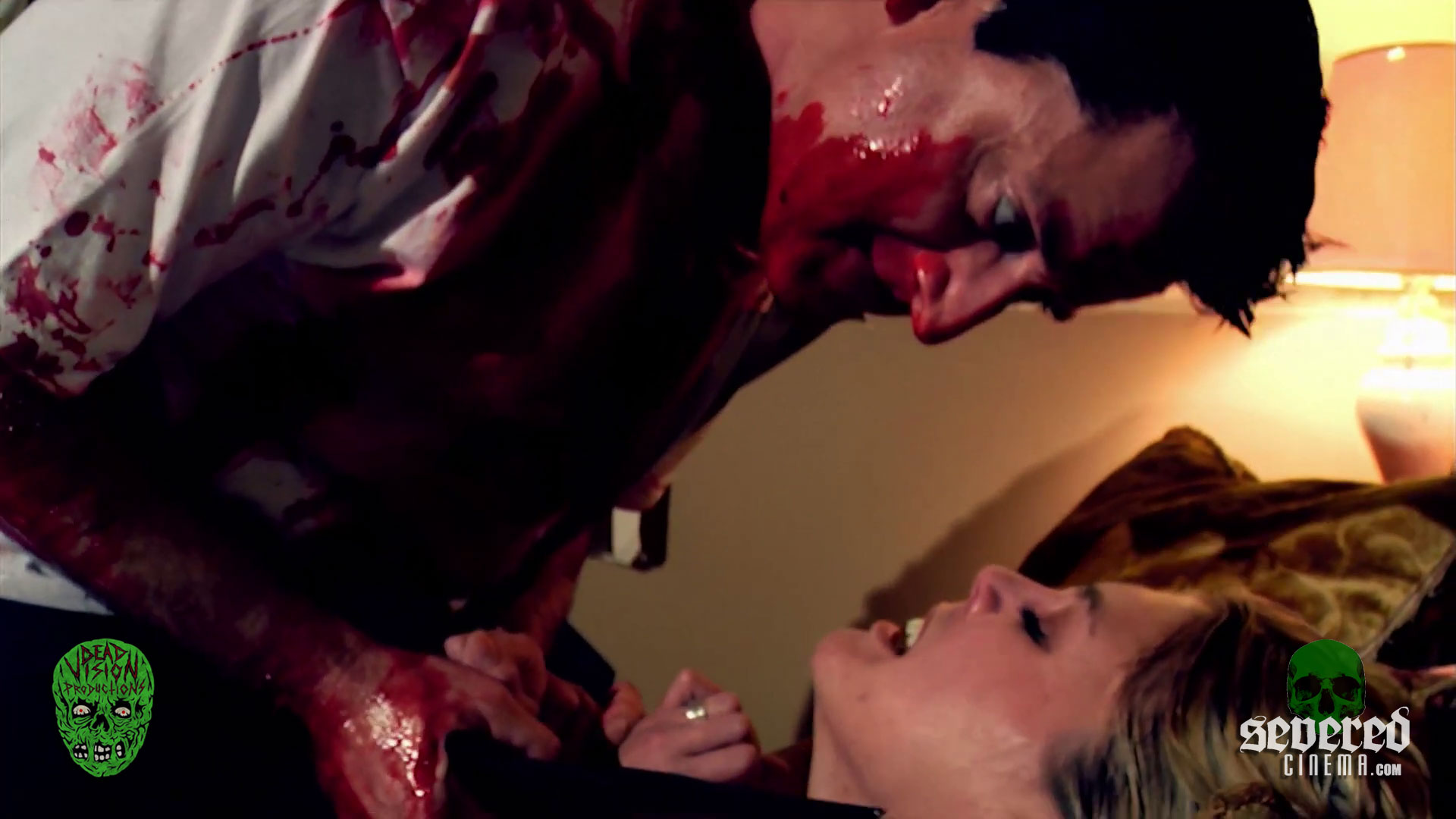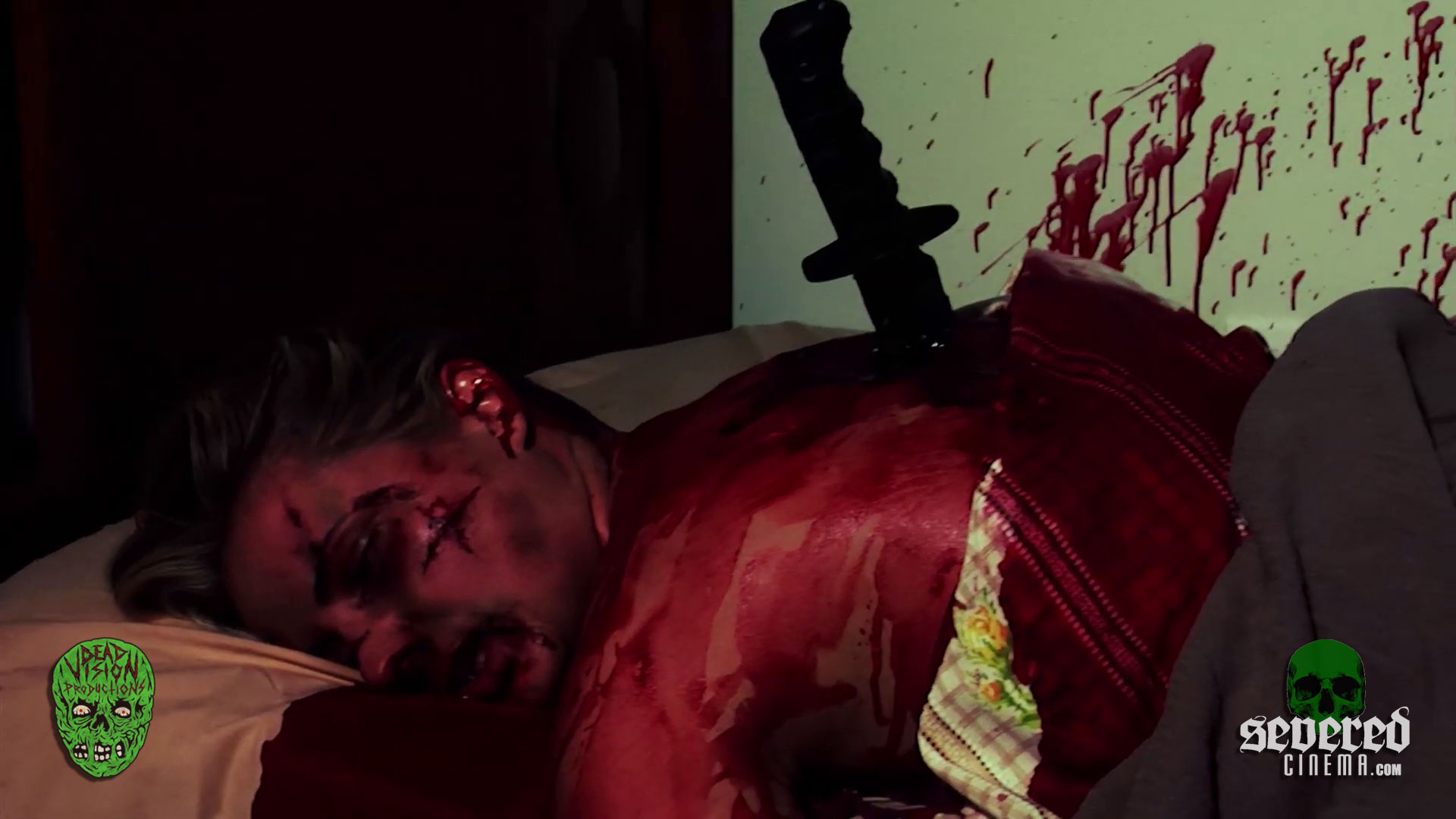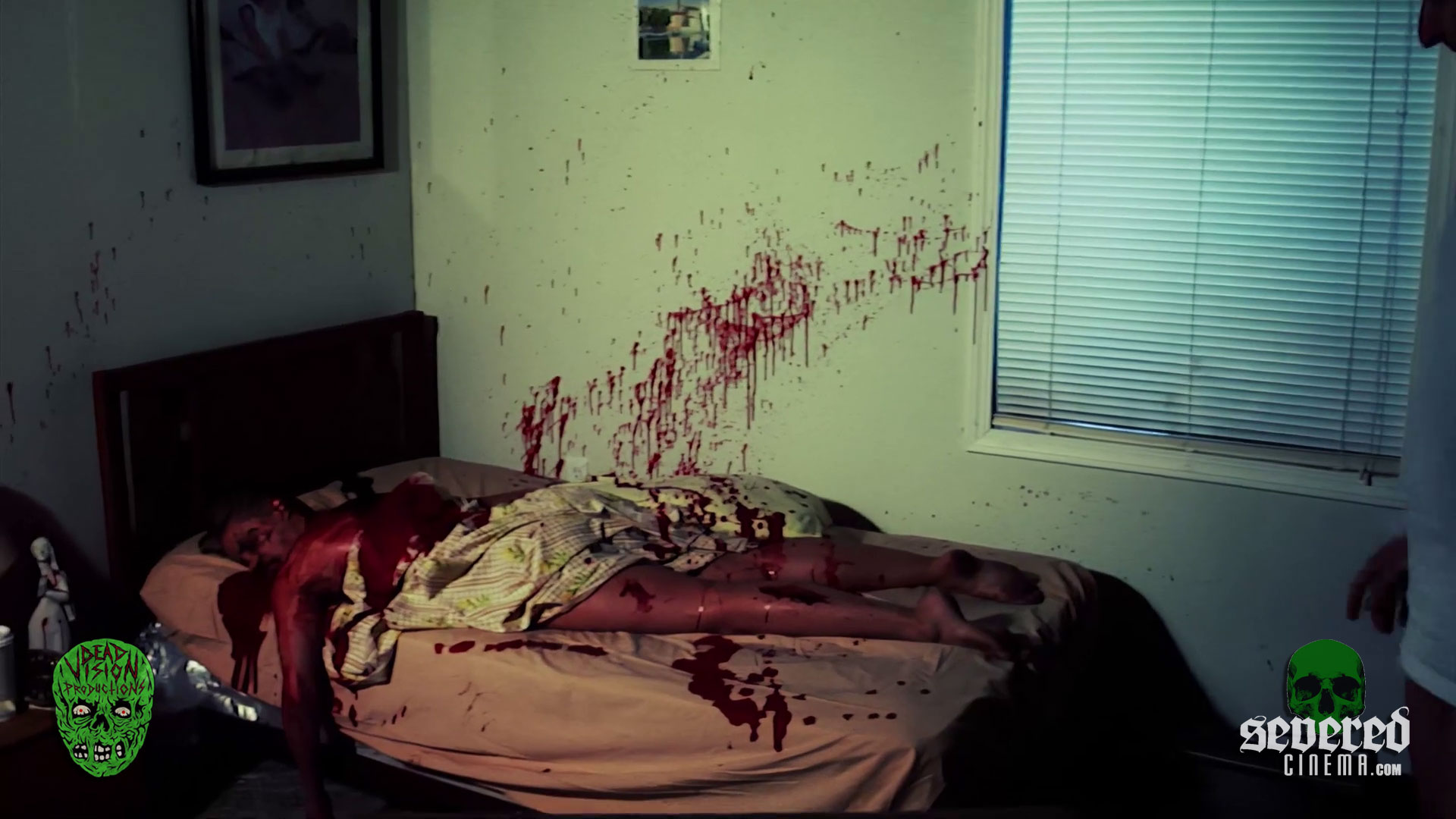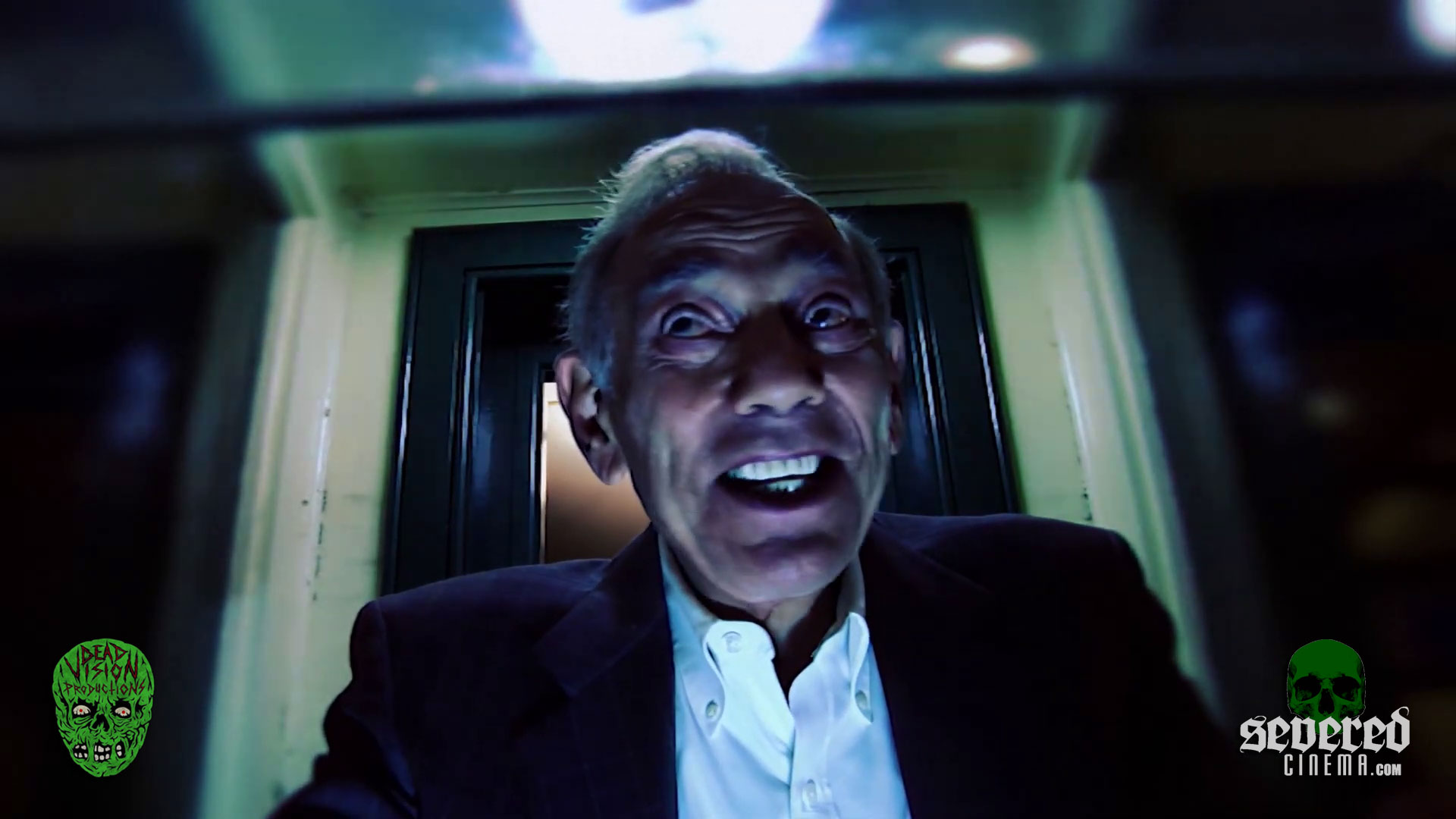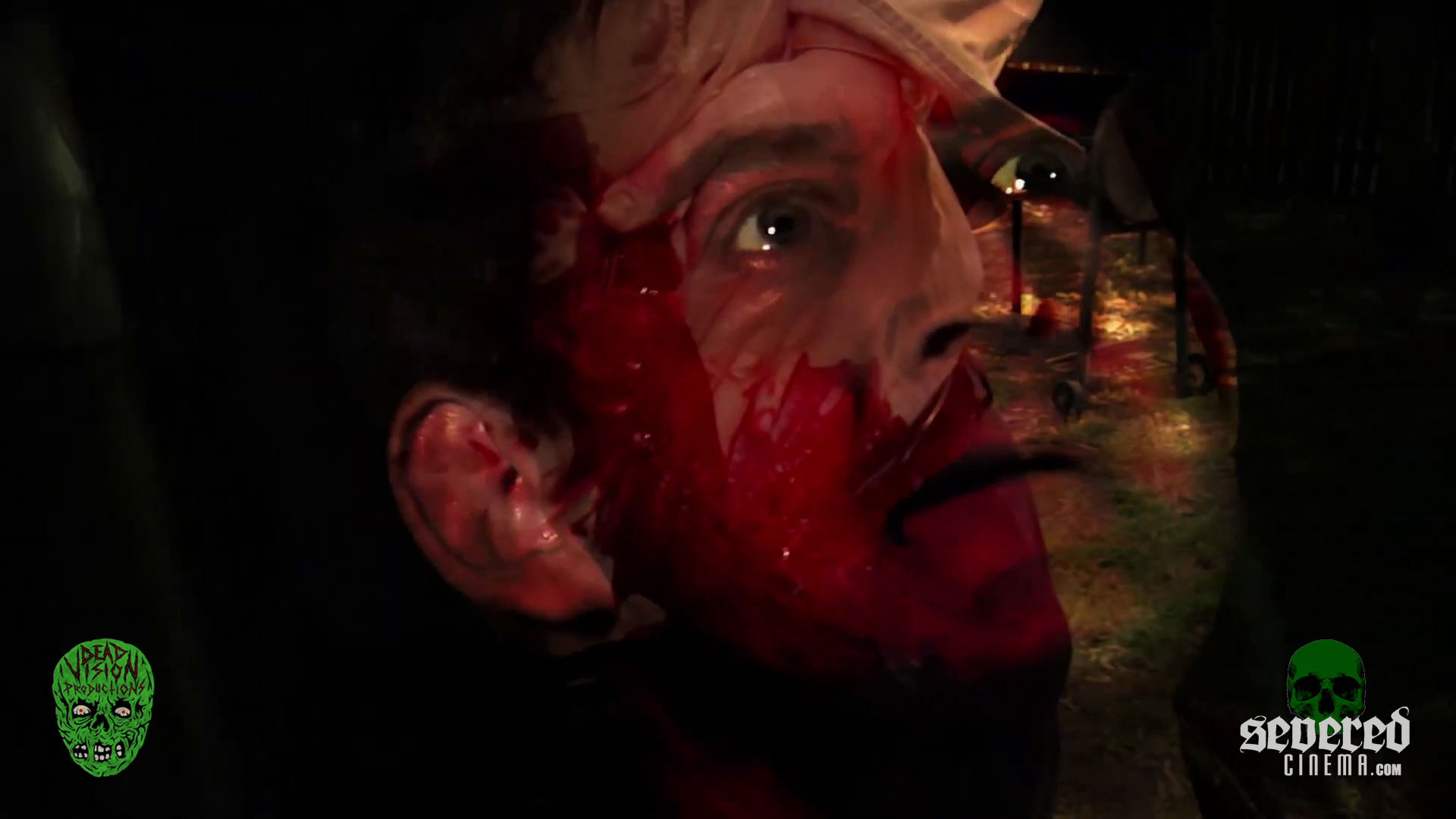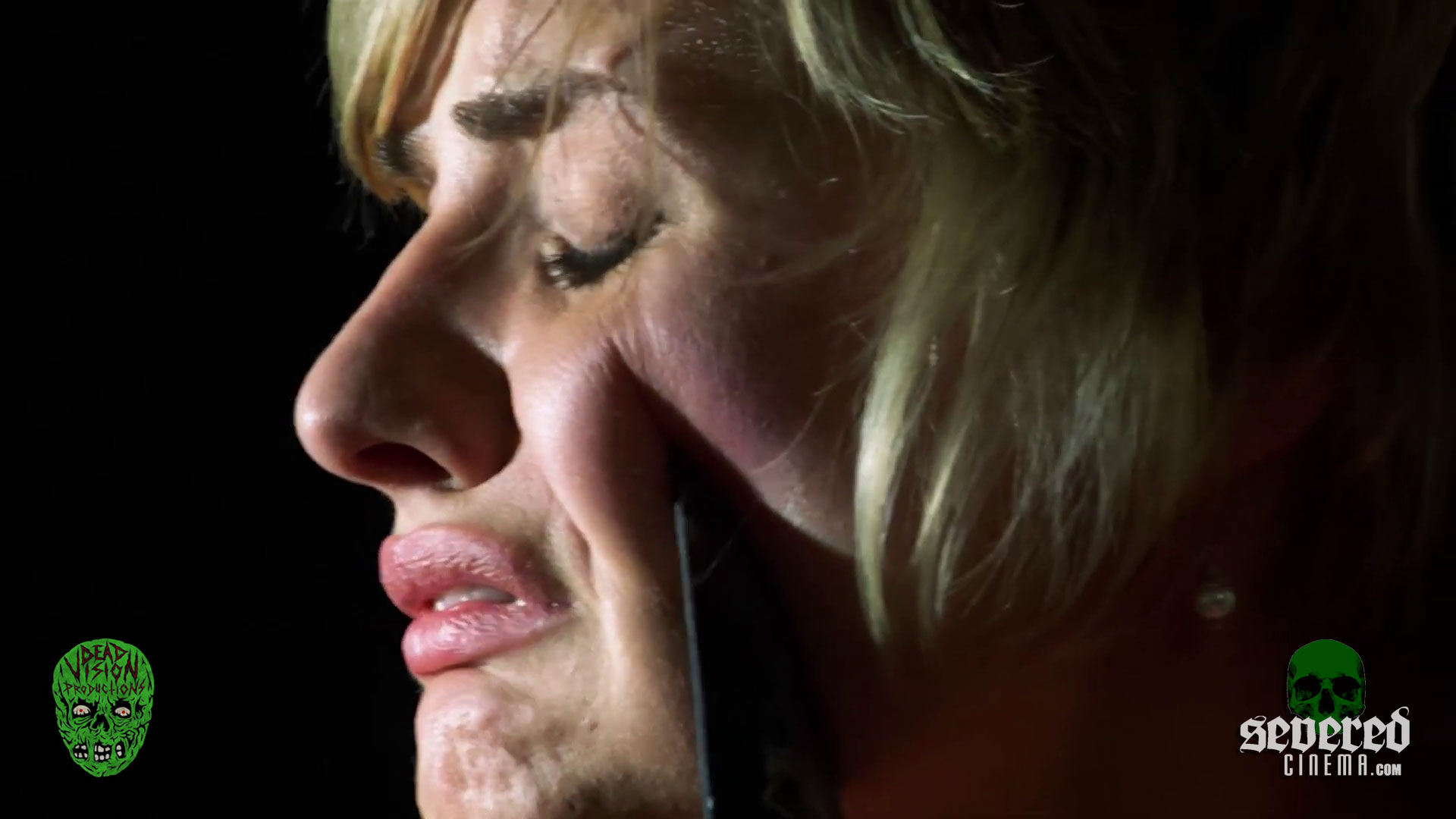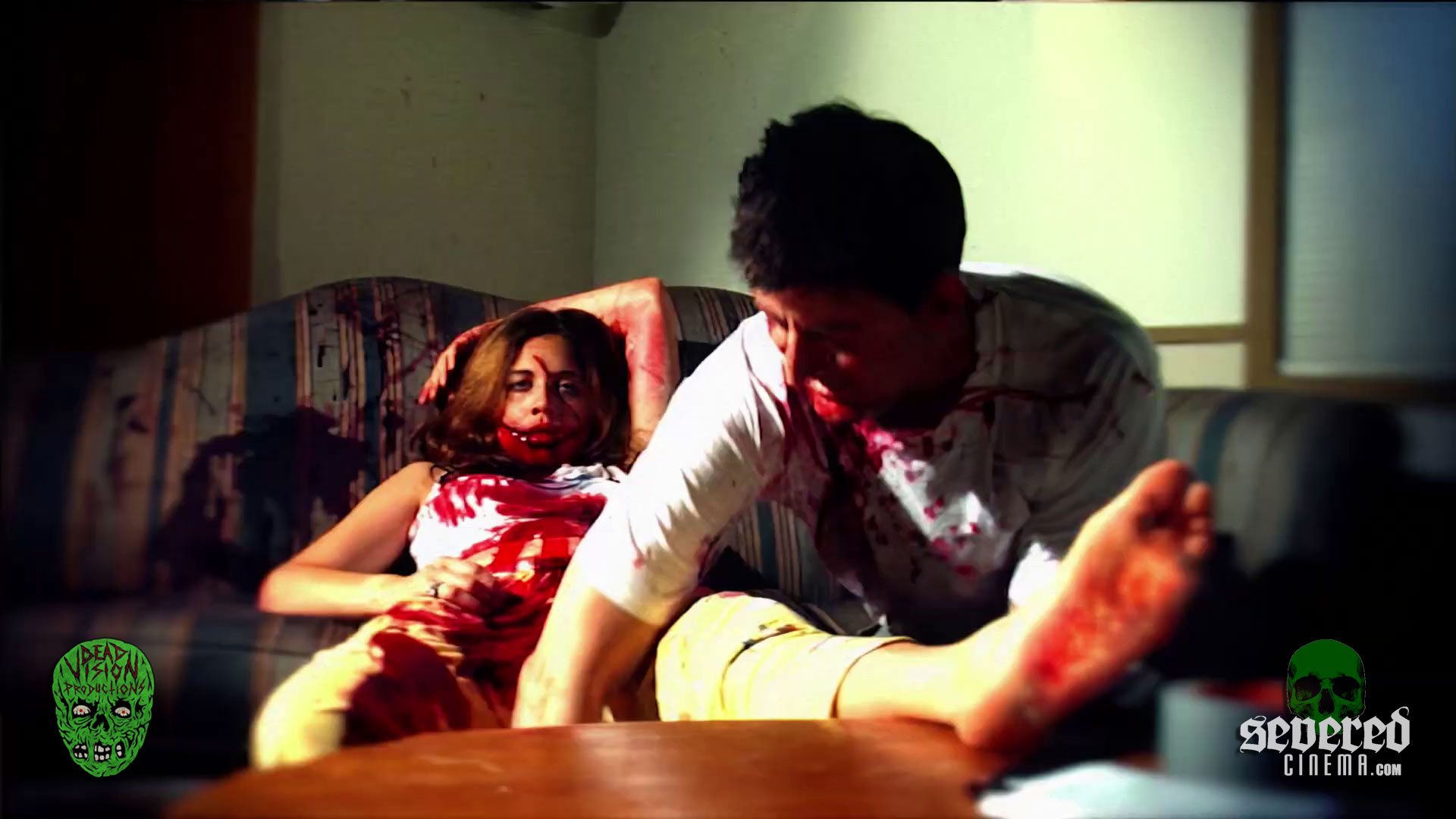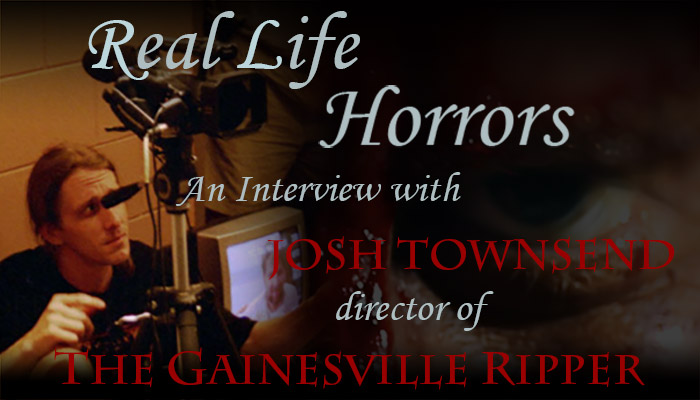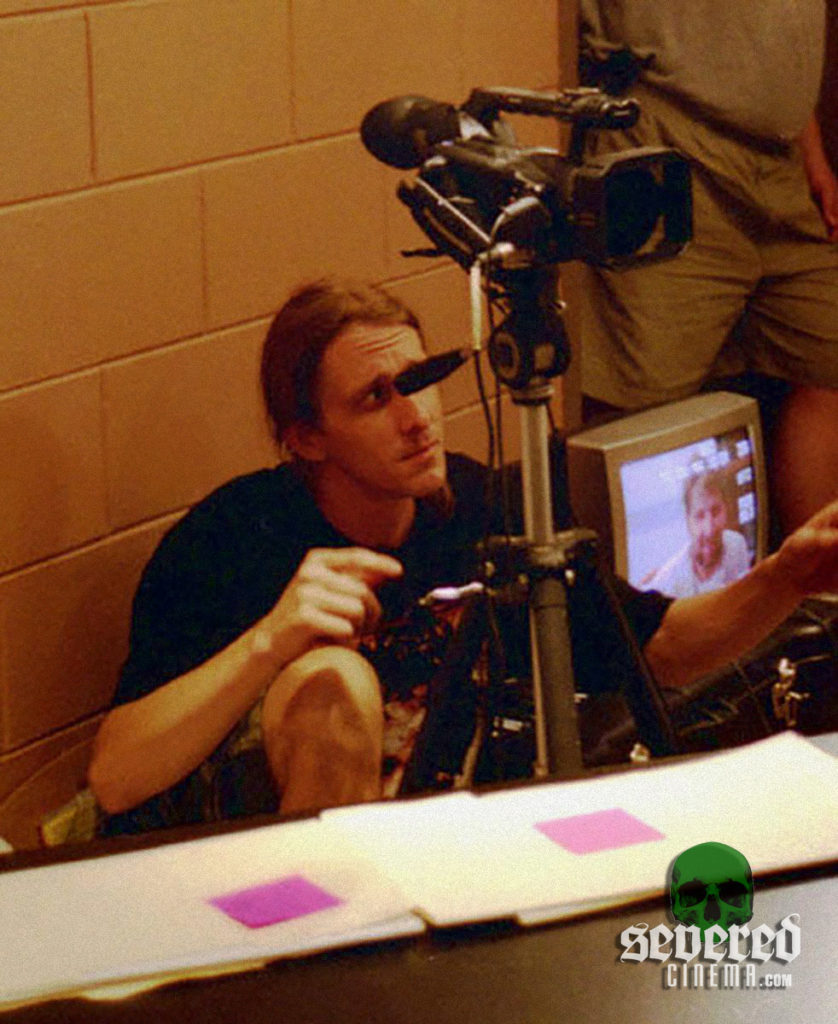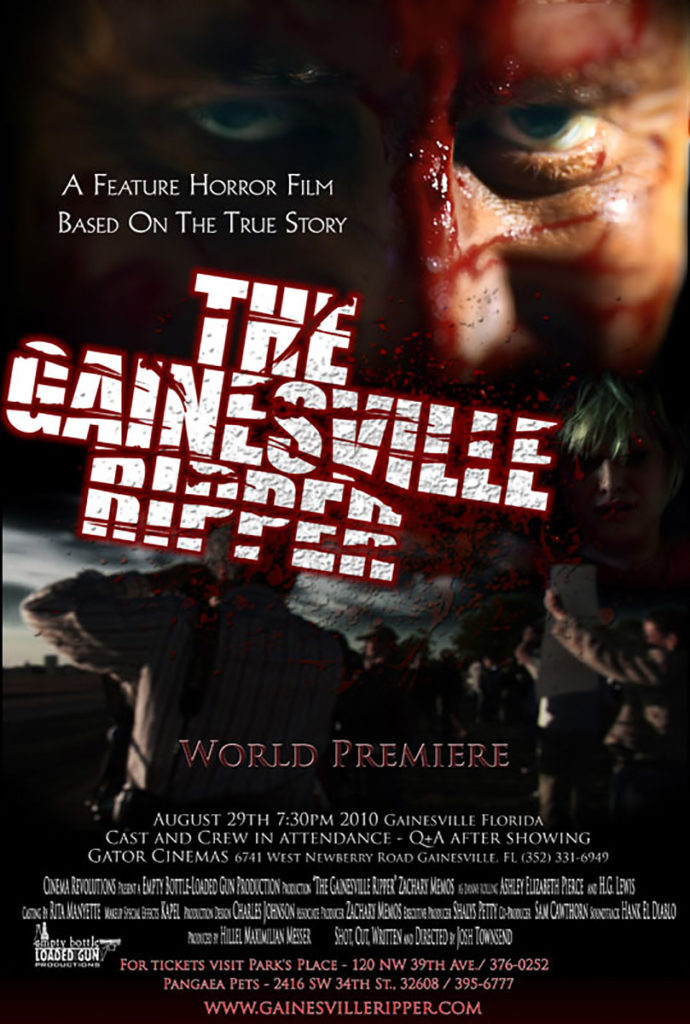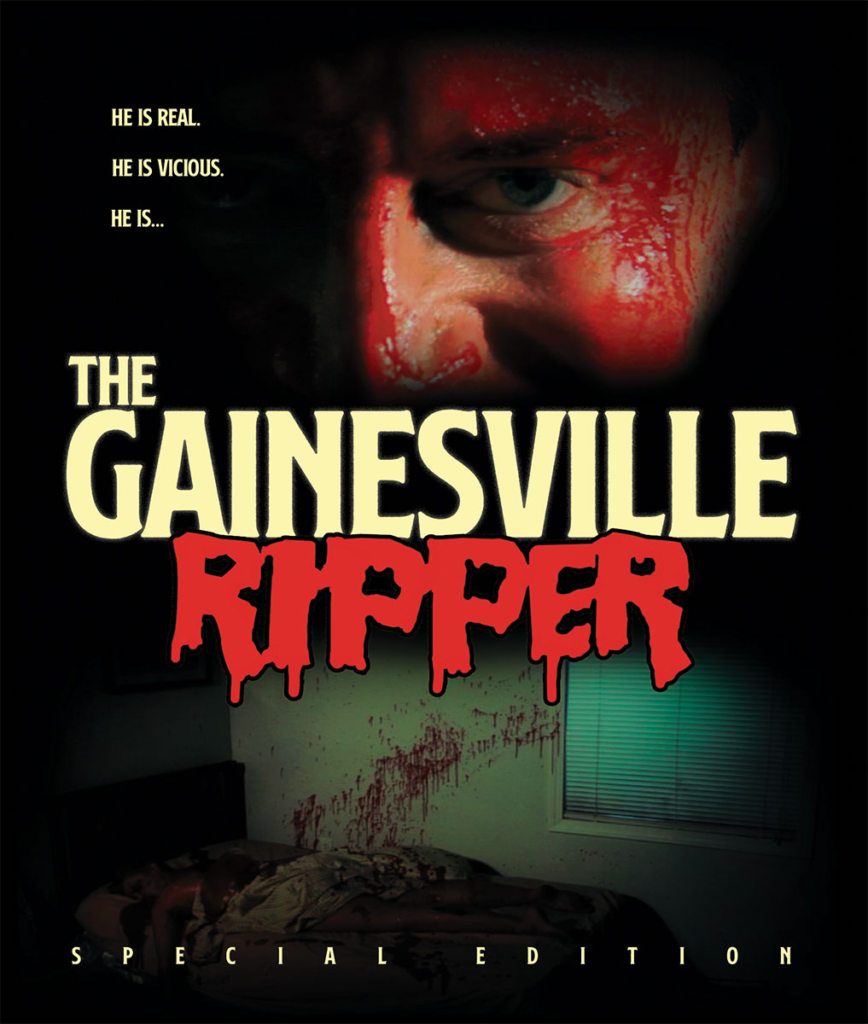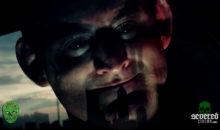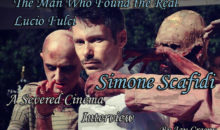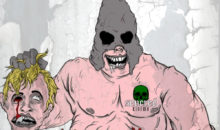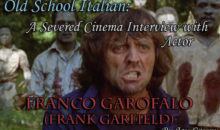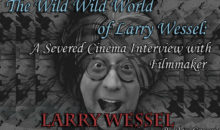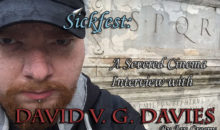Real Life Horrors: An Interview with The Gainesville Ripper Director Josh Townsend!
Originally published Wednesday, August 18, 2010
It all began with Loyalty, a gangster/horror hybrid short film. Years in the making, director Josh Townsend returns with his first feature length cinematic journey based on real life serial killer Danny Rolling. Today we talk to Townsend about his film The Gainesville Ripper and its upcoming theatrical premiere.
The Gainesville Ripper is your first feature length film. Tell us how you began your foray into filmmaking.
I started off like everyone else, talking about making a movie yet never getting beyond words on a page. 15-years later I manned the fuck up and moved from Gainesville to Jacksonville, a larger town which actually had people who were serious about making movies. I started at the bottom helping other filmmakers with their projects, doing anything they needed whether it was holding a boom mic or holding a cup of ice so the actresses could keep their nipples hard (true story). I soon gained enough favors and experience to be able to make my first serious short, Loyalty, which played at Fantasia in Montreal. I stopped having on/off girlfriends and made film my mistress.
When people tell me they want to make a movie I tell them to ditch their wife/girlfriend. And I’m only half joking.
What made you decide to make a film on serial killer Danny Rolling?
It’s always been in the back of my head. After Loyalty, I was prepping my next short and doing custom carpentry during the day to finance everything. Long story short, I cut off three of my fingers one day (they got sewed back on) and wasn’t gonna be able to go back to work for at least a year, so I got serious about doing a feature.
Nobody had made a movie about Rolling and having lived through the murders I thought I had a unique point of view.
How long did it take you to pen the script and was there much research involved?
It took 6 or 8 months to come up with the shooting draft. Because I just had my fingers re-attached it was physically really hard. Actors and crew members helped with the typing. At first, we were in talks with a real Hollywood production company, but they kept giving us stupid notes, changes and additions that made the script into a two-hundred-page monstrosity that I fucking hated. They changed so many facts about the case for stupid reasons I just gave up and decided to finance it myself with my workers compensation settlement.
Growing up in Gainesville I knew all the facts about the case so doing the research wasn’t that bad. We did go through all the old newspaper articles and court papers because I was adamant about having correct dates and such. Hell, I’d go so far as to say that “Ripper” is the most factually correct serial killer movie ever made. We didn’t make up characters, switch dates or make anything up that was proven fact.
Artistically it was a huge challenge because I had to make it a cinematic experience. Rolling always claimed that he had a second evil personality named Gemini that took over when he murdered. I decided to play on that angle, make it sort of a psychological character study/horror flick.
During the pre-production of such a film, were you concerned with any repercussions that might occur from the victim’s families that were involved with this case?
Definitely. I changed the names of all the victims. In the movie we don’t know anything more about the victims than Danny did. I didn’t want to portray them in a wrong way or make up a personality for them that might in anyway be untruthful. Besides working for the story, it also was a way of diffusing any grief we might get from the families, some of whom had already made it clear they were against the idea of us making the film.
Who played the role of this infamous killer and how did you find a fitting match for the role?
Zachary Memos plays Danny Rolling. We read actors from all around Florida, and he was the best, most dedicated actor we found. Zack spent countless hours studying everything about Danny, watching video to replicate his mannerisms and voice cadence. Zack really understood what we were trying to do. He also lives in Gainesville and is a local TV personality, but that’s really just a lucky coincidence.
Besides acting in the movie, Zack also became a co-producer and has been more involved in every aspect of the movie than anyone other than me. I can’t say enough good things about him. He’s a great person who helped me make a movie that we are both proud of.
During the course of shooting The Gainesville Ripper did you experience any problems with people protesting the shoot of the film due to its sensitive subject? Or did you have an overall welcomed reception?
I actually expected more resistance than we got. It helped that all the interior scenes were shot here in Jacksonville on sound stages. We only went to Gainesville to get exterior stuff and when we did shoot in town we stayed as low key as possible.
The press we did in Gainesville right before we started filming was pretty hardcore. The local newspaper interviewed some cops and family members, and they didn’t have very nice things to say about the production. It seemed like they were just mad because we were making it a horror film, but really what else could it be? The crimes were so horrific that making it a thriller or cop procedure wouldn’t do justice to what really happened.
In general though, except for the press, family, and cops, everyone from Gainesville has been nice and helpful. We found that the people who lived in Gainesville at the time of the murders were extremely enthusiastic about the production. They just wanted someone to tell their story and show how horrible it was to live in a small college town when almost every day a new mutilated body was found.
When they executed Rolling two years ago (right in the middle of production by the way) Zack and I were outside the prison with all the pro-life and pro-death people. People on both sides were keen to talk with us. The title credit sequence at the beginning of the film is made up of footage we shot outside the prison the day of the execution. It was a media circus. There were dozens of news crews and hundred of people there. I’ll never forget the crowd cheering when it was announced that Rolling had been executed.
With the overabundance of lackluster straight-to-video serial killer movies flooding rental store shelves, what sets your film apart?
That’s a hard question to answer without sounding pretentious. The Gainesville Ripper is a very personal film. I went out of my way to make it visually and sonically original. We stayed well clear of the standard serial killer/slasher film conventions. There are no hardboiled detectives or cops in the film. No slutty teenage victims. No gore for the sake or cats jumping into frame to give a cheap jump scare. Fuck all that.
The only real serial killer movie that I’m vaguely comfortable comparing Ripper with is Matthew Bright’s Bundy.
I’m a huge genre fan and I held myself to a higher standard than 99% of those straight-to-video flicks. There was a massive effort to make Ripper different and better.
So viewers needn’t worry that The Gainesville Ripper is another Ulli Lommel-esque abomination coming our way?
Abomination is too soft of a word. I like to think about them as Cinematic Atrocities. Those movies are just products rushed into the market without an artistic pixel in them. He churns them out in an almost assembly line fashion.
I really don’t like to slam other filmmakers but for Ulli I’ll make an exception. Uwe Bolle is ten times the filmmaker he is, and we know that’s not saying a whole lot.
What type of horror film is The Gainesville Ripper and how accurate are the depictions in your film to the actual events?
Everything is totally accurate and based on the forensic reports from the Medical Examiner. Of course, I didn’t want to show everything and make it an Aftermath or Guinea Pig type of film. I understand and respect those movies but going that far wouldn’t serve the story we were trying to tell. Don’t get me wrong, there is rape, graphic murder and mutilation that pushes a possible R-rating, but I approached each murder scene in a way that conveyed what was happening in a cinematic way without having to show every single thing. That was one of the more artistically satisfying aspects of making the movie.
The Gainesville Ripper took four years to make. Oftentimes budgetary restrictions can cause a film to not even be completed at all. How hard was it to bring your vision to life, from pre-production to post-production?
Hardest thing I ever did. I never meant it to take four years to complete. I’ve been going through Producers like toilet paper. I had a guy we found out was a registered sex offender and guys who only cared about making t-shirts and posters when we were struggling to get the movie finished.
Besides the regular problem of not having any money, getting someone to really commit to making the soundtrack and audio great was the biggest hurdle. Sound is as important as the visuals and that is where most DTV movies skimp. After a good bit of wasted money on so-called professionals I finally found a kindred spirit in a local musician named Hank El Diablo. He stepped up to the plate and hit a home run for the project. Hank worked for a year straight on not just the soundtrack but also the sound design, foley and final mix. He’s the kind of dedicated person that are one in a million. It was like hitting the lottery. He’s also a talented writer and upcoming director. I’m excited to produce his first short film.
Who are your favorite directors and were there any cinematic influences when shooting The Gainesville Ripper?
Lately my influences come from contemporary directors like Nicolas Winding-Refn, Gaspar Noé, Neil Marshall, Darren Aronofsky, Jim Van Bebber and Chan Wook Park. Of course, I respect the old school: Romero, Carpenter, Raimi, Hooper, Dante, Landis, etcetera. But we’ve been let down by their recent work. David Cronenberg is the exception, though.
I read other directors in interviews and they always reference those old school influences non-stop but rarely mention any of the great new directors working today. Nobody makes films in a vacuum. Every director is influenced by the movies they watch and love. There are films coming out by directors without grey hair that are every bit as good as those ‘70s and ‘80s genre classics. The thing I love about Tarantino or Edger Wright is that they wear their influences on their sleeves yet still manage to make totally original films.
That said, though, Sam Peckinpah has had the greatest influence on me. More than any other director. His attitude, style and overall career path has had a huge impact on me. I’ve also learned a ton from his mistakes. I find that one learns more from other directors’ mistakes than you learn from what they did right.
Even though he’s too new to have had an influence on Ripper, I’m keeping my eye on Srdjan Spasojevic (A Serbian Film). He has potential to do some great things.
The Gainesville Ripper makes its world premiere August 29th in Gainesville, the hometown in which the murders took place. Are you excited and what can viewers expect?
Very Excited. Even though there aren’t going to be reviewers or buyers there, it is a huge deal for me. I was born there and spent the majority of my life there talking about making movies. It’s a great feeling to return there after 7 years and show my first real film. I finally get to prove that I wasn’t just talking shit all those years.
Also, this month is the 20th anniversary of the murders and our premiere is really close to being shown 20 years from the day of the last murder. Nobody believes me but I swear it’s just a coincidence. We’ve had the film done for a few months ago but I wanted to wait until the students came back into town from summer break to have the premiere. Of course I expect to get more flack from the local media and cops. I wouldn’t be surprised if we had some protesters. If there are, I’m going to make my own sign and join them. Fuck it, that’s the American way.
Can we expect an expanded theatrical release or DVD release in the near future?
Of course. We’re not even thinking about going theatrical. I’m realistic and the fact is almost all limited release, non-Hollywood films are lucky to just break even. Being able to see it at film festivals or four-wall events like the premiere is enough to satisfy my ego.
Our plan is to start selling the movie after the Gainesville premiere using the local press to help beef up our press kit. Waiting for the local premiere did make us miss out on most of the cool festivals this year, but I do have some cards up my sleeve I can’t talk about right now.
We’ve already started conversations with a few good-sized distributors so hopefully we’ll have some good options by the end of the year.
Pre-order coming September 1st, 2022 from Severed Cinema & Dead Vision Releasing.
